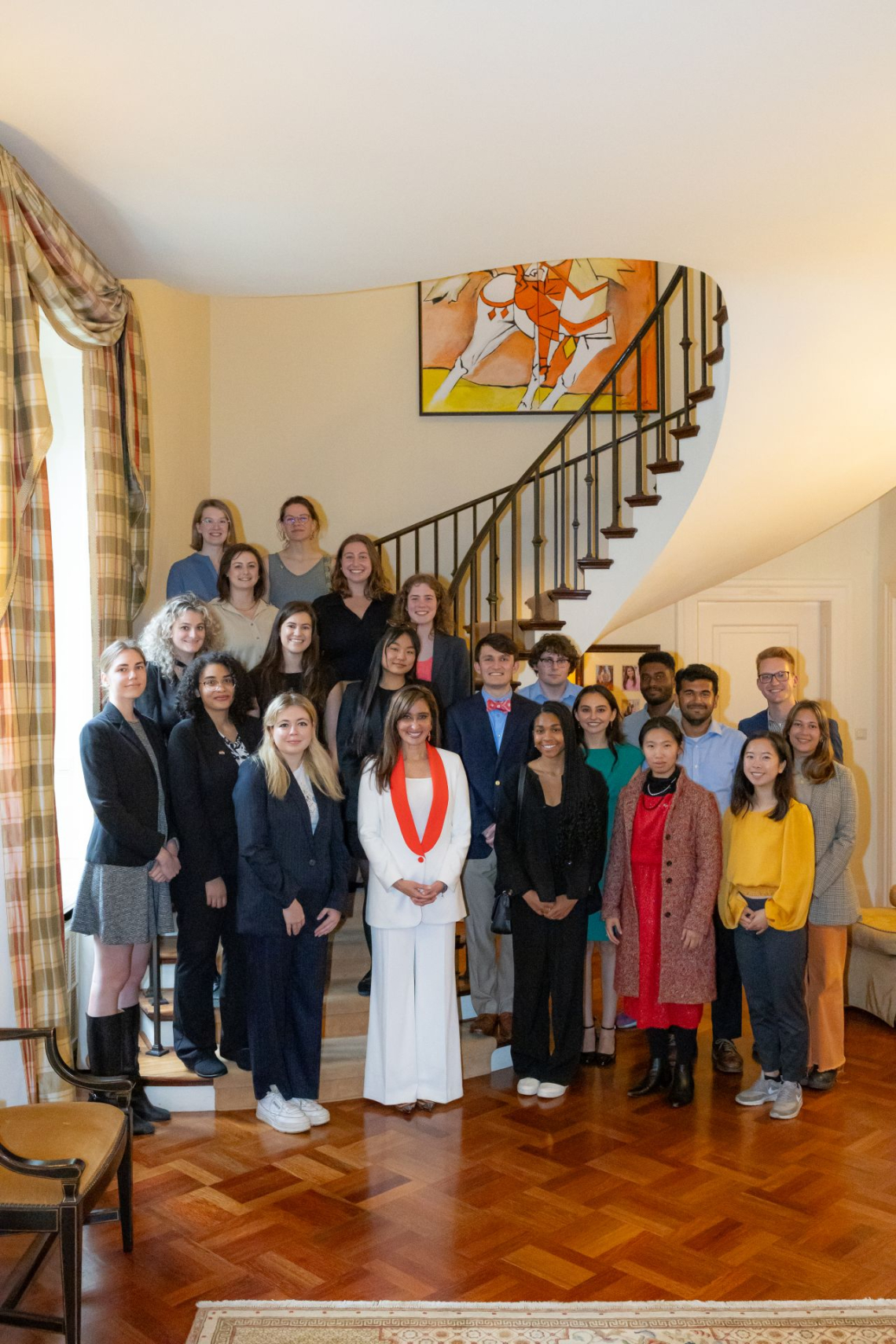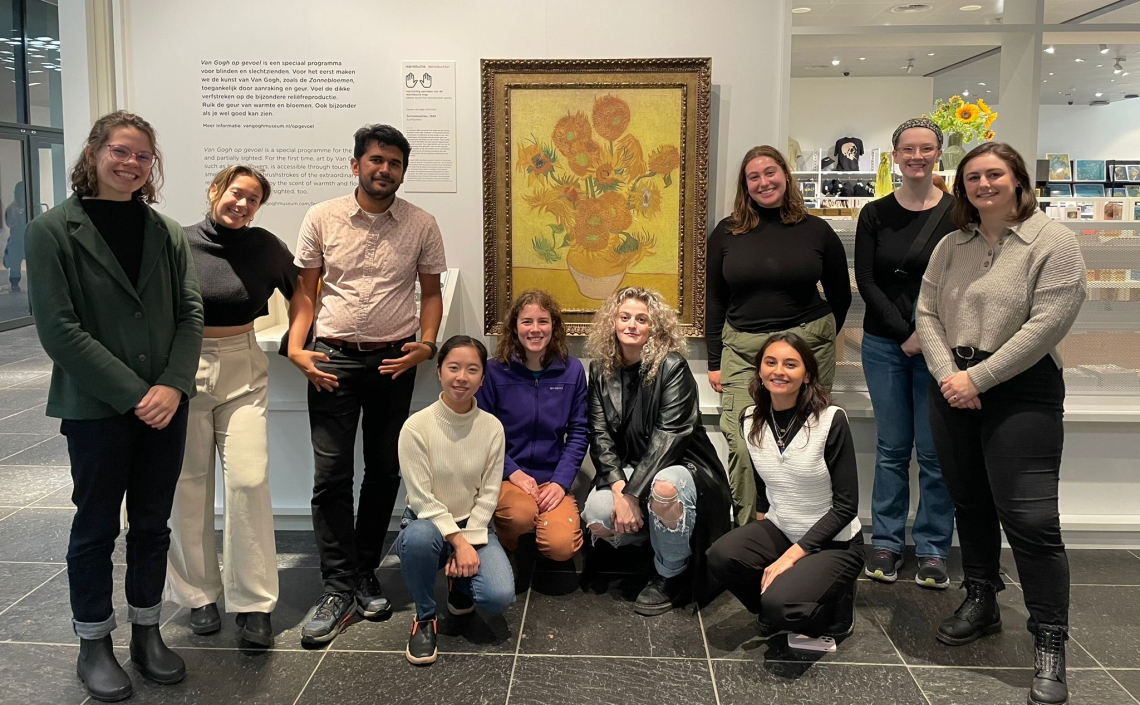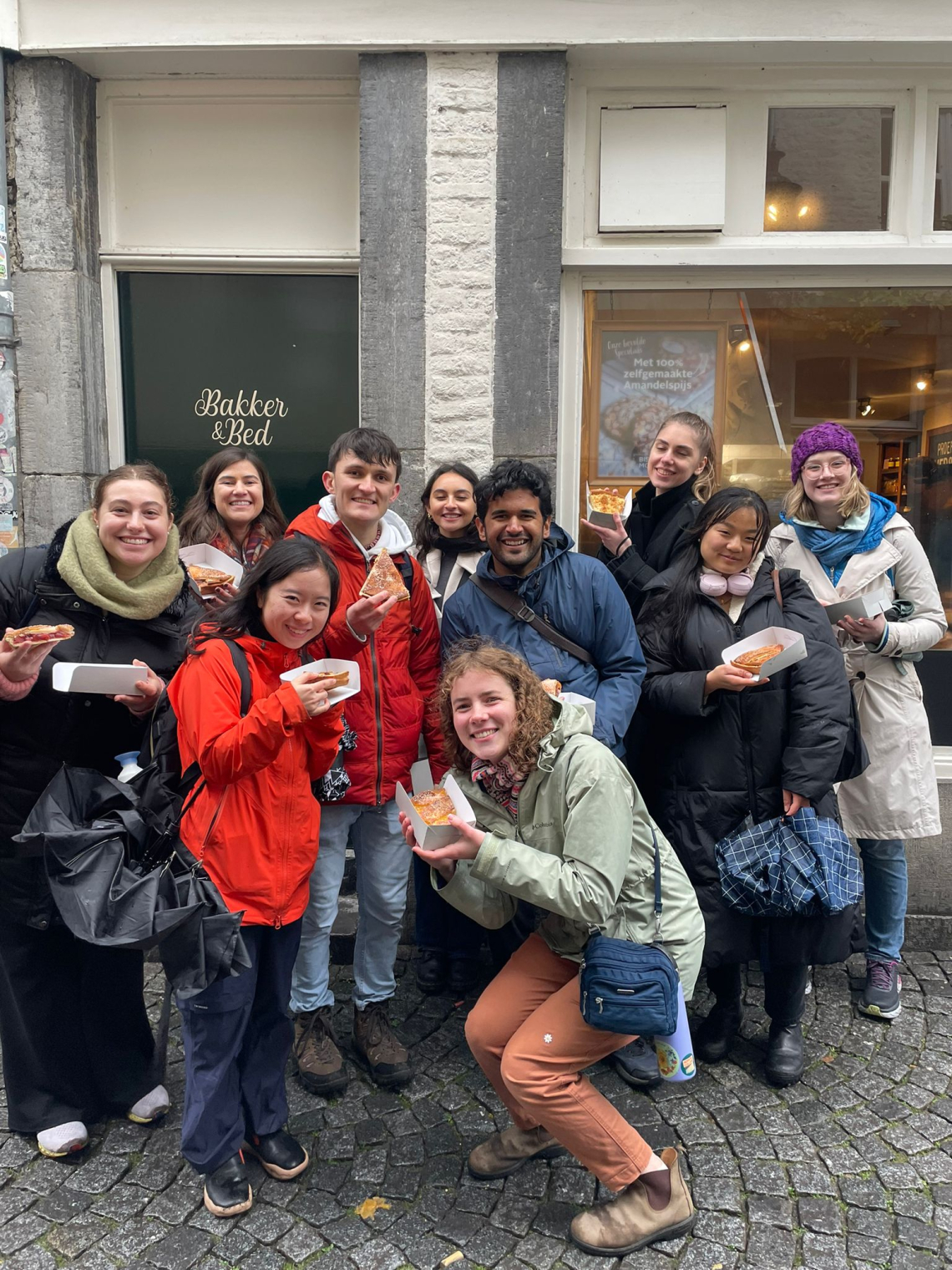Netherlands
8 Open Study/Research Award
Accepted Degree Levels
|
Grant PeriodFall StartGrant Length9 Months |
Award Type
Award Profile
The approximately 8 Open Study/Research grant can be in any field and can be for either a Master degree or for a research project.
Of the 8 Fulbright study/research grants, approximately 6 grants will be sponsored by the Netherland-America Foundation (NAF). The NAF seeks to maintain and strengthen the ties between the Netherlands and the United States. These grants are called the Netherland-America Foundation/Fulbright Grants.
Grant Length
Grant Period
Grant activities must begin by September 1, so that the grantees can attend the first orientation meeting which will be held at the end of August or the beginning of September. Some university programs may start before this date. The grants for specific universities and/or topics, listed separately on the Netherlands page, may have a longer duration than 9 months, please review the specific grant information under these grants for specifics on the grant period. The open study/research grants are 9 months.
Orientation
The one-day mandatory Fulbright In-Country orientation will take place at the end of August/beginning of September (date to be determined). There also is a second introduction meeting at the end of September, usually taking place at the U.S. Ambassador's Residence.

Candidate Profile
The Fulbright Commission the Netherlands will accept applications from students who will do a Master degree program, or who combine research and advanced graduate courses and seminars at Dutch universities, conservatories and art schools. Applications for an indepedent research project will also be considered, as well as students working toward their Ph.D. degrees to carry out well-formulated independent research projects.
Applicants planning to do an independent research project immediately after receiving a Bachelor's degree should have a significant amount of research experience.
What is life like for Fulbrighters in the host country?
Applicants are expected to research their host country. Application materials should indicate a clear commitment to the host country community and a description of how you will engage with it.
The Netherlands is a small country, approximately the size of Maryland or West Virginia. It is a fairly densely populated country, with good public transport links. This makes it easy to travel to other parts of the country during your stay. It has a temperate climate with a fair amount of rain. The Dutch economy is geared mainly towards import/export, services and trade, and less on heavy industry. Most Dutch people will be able to speak basic English, and you will be able to get around without speaking Dutch. However, it is really appreciated if you learn some Dutch either before or during your stay in the Netherlands. With three airports, in Amsterdam (all destinations), Rotterdam and Eindhoven (European destinations), it is also easy to reach other European countries for weekend trips.
The Dutch are known for being direct, which can also be interpreted as being rude or blunt. In general, most Fulbright grantees indicate that it takes a bit of getting used to, but they appreciate it after being in the country for a while. The grading system in the Netherlands may also take some time getting used to. It ranges from 10-1, with a 10 being a perfect score and anything below 6 a fail. The grades 10 and 9 are rarely given, only in case of exceptionally good work, a 7 and 8 are considered to be good grades. Also, the courses and grading are mostly based on exams at the end of term.
The Dutch Fulbright Commission will organize four meetings during your stay, two introduction meetings at the beginning of the grant period, a mid-year evaluation and a meeting at the end of the grant period. There also is a cultural excursion program in place, where approximately 4 excursions are organized to places of interest in the Netherlands.
 .
. 
Eligibility
1 Month
Fulbright the Netherlands prefers to select applicants with no or limited experience in the Netherlands, especially in the year before the grant period. A brief holiday or a summer program in the year before the grant year would be acceptable.
Degree Level of Applicant
- Bachelor's
- Master's
- Doctoral
Foreign Language Evaluation (FLE) Form
If required, submission of the Foreign Language Evaluation (FLE) form is mandatory, even if you have advanced skills or are a native speaker of the language. Failure to submit the required FLE form may impact your eligibility.
Additional Information: Dutch language proficiency is not required if the applicant is planning to do an English language Master, but is certainly useful to have. Some study of Dutch prior to arrival is encouraged to promote deeper engagement with the host community. In case Dutch language proficiency is required for the research project of the applicant, please indicate the level of proficiency achieved by the applicant in the project statement.
Fulbright Proposal Types
Yes
Yes
Affiliation
Applicants are responsible for arranging their own affiliations, or applications to a Dutch university.
An affiliation letter should always be included in the application in case of a research project (also in the arts).
In case of an application for a Master study program, no letter of affiliation is necessary. If already available, a letter of admission can be added. Most likely, however, due to the later application cycles at Dutch universities, applicants will not be able to secure a letter of admission before the deadline of the Fulbright grant application. If this is the case, the letter can be provided at a later date before the grant start, and it is not necessary to add a letter of affiliation instead. The application process for Fulbright and admission to a Dutch university are separate application processes with their own deadlines. The Fulbright deadline will be earlier than the admission deadline at Dutch universities. If a candidate is applying for one of the specific university grants for the Netherlands and not in the open study/research category, please note that these university specific Fulbright grants have earlier deadlines! They can be found in the description of the specific grant.
Due to the Dutch residence permit laws, all candidates need to be affiliated with an institute that has legal status to apply for a residence permit on the candidate's behalf. All universities, conservatories, and most research institutes fall into this category. If the applicant's host institution does not fall into one of these categories mentioned, please inquire whether the host can apply for a residence permit on the applicant's behalf, and ask them to mention this in the affiliation letter.
Affiliation Fees/Tuition
Applicants should be aware that tuition waivers/reductions are rarely given. Tuition fee waivers are at the discretion of Dutch educational institutions, and applicants are responsible for requesting waivers. In the event a fee waiver/reduction is not granted, candidates should be aware that the Fulbright grant does not provide the cost of these fees.
Award Benefits
- A stipend broadly based on the cost of living in the host country. These funds may be used by the grantee to support housing, meals, and incidental costs during the grant period.
- International travel benefits
- Accident & sickness health benefits
- 24/7 mental health support line for urgent and non-urgent situations
- 12 months of non-competitive eligibility (NCE) hiring status within the federal government
Stipend Amount
This is an estimated amount and is subject to change. The financial terms of the grant will be confirmed in the grant document issued after selection.
The grant is paid in monthly installments.
One-Time Allowances
This is an estimated amount and is subject to change. The financial terms of the grant will be confirmed in the grant document issued after selection.
- Registration/Permitting fees
- Local transportation allowance
A residence permit is mandatory for the Netherlands. The costs of the residence permit will be reimbursed. For any mandatory Fulbright meetings, local travel costs by public transport will be reimbursed. Also, either an international travel allowance of € 1,000 will be provided, or in case of a Netherland-America sponsored grant, a roundtrip ticket with KLM will be provided.
Additional Grant Benefits
- Mid-year seminar
There will be four meetings over the course of the year, one of which will be the mid-year evaluation. Grantees will also be reimbursed for a Museum Year Card, giving free access to over 400 museums in the Netherlands.
Estimated Cost of Living
Consider using cost of living comparison websites to gain a better understanding of the potential costs in your host country.
This website is a good way to get a general idea about the cost of living in the Netherlands.
Dependents
Dependent support is not available. If an applicant is planning on bringing dependents, please contact the host institution to inquire whether they are willing to also apply for a residence permit for the dependents. Without a residence permit applied for by the host, dependents will not be able to join the applicant.
Housing Arrangements
Grantees are responsible for finding housing themselves. The host universities may be able to help with this, but this is not guaranteed. The Fulbright Commission suggests to start searching early, as the housing market in the Netherlands is challenging.
Fulbright Program Management Contact
Fulbright Commission/U.S. Embassy Website
Fulbright Commission/U.S. Embassy Contact
Additional Online Resources
Information about the Netherlands: https://www.netherlandsandyou.nl/themes
Information about the Netherlands: https://www.netherlandsandyou.nl/more-about-the-netherlands
